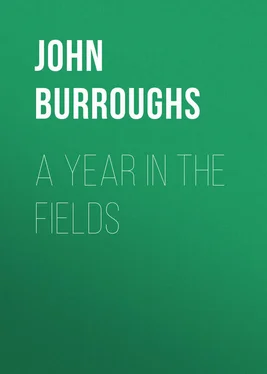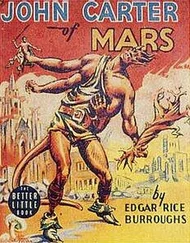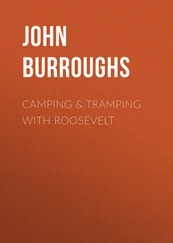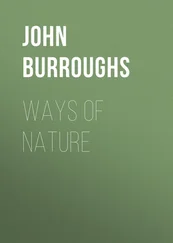John Burroughs - A Year in the Fields
Здесь есть возможность читать онлайн «John Burroughs - A Year in the Fields» — ознакомительный отрывок электронной книги совершенно бесплатно, а после прочтения отрывка купить полную версию. В некоторых случаях можно слушать аудио, скачать через торрент в формате fb2 и присутствует краткое содержание. ISBN: , Жанр: foreign_antique, foreign_prose, Историческая проза, на английском языке. Описание произведения, (предисловие) а так же отзывы посетителей доступны на портале библиотеки ЛибКат.
- Название:A Year in the Fields
- Автор:
- Жанр:
- Год:неизвестен
- ISBN:http://www.gutenberg.org/ebooks/31292
- Рейтинг книги:4 / 5. Голосов: 1
-
Избранное:Добавить в избранное
- Отзывы:
-
Ваша оценка:
- 80
- 1
- 2
- 3
- 4
- 5
A Year in the Fields: краткое содержание, описание и аннотация
Предлагаем к чтению аннотацию, описание, краткое содержание или предисловие (зависит от того, что написал сам автор книги «A Year in the Fields»). Если вы не нашли необходимую информацию о книге — напишите в комментариях, мы постараемся отыскать её.
A Year in the Fields — читать онлайн ознакомительный отрывок
Ниже представлен текст книги, разбитый по страницам. Система сохранения места последней прочитанной страницы, позволяет с удобством читать онлайн бесплатно книгу «A Year in the Fields», без необходимости каждый раз заново искать на чём Вы остановились. Поставьте закладку, и сможете в любой момент перейти на страницу, на которой закончили чтение.
Интервал:
Закладка:
Just at dusk in the winter nights, I often hear his soft bur-r-r-r , very pleasing and bell-like. What a furtive, woody sound it is in the winter stillness, so unlike the harsh scream of the hawk! But all the ways of the owl are ways of softness and duskiness. His wings are shod with silence, his plumage is edged with down.
Another owl neighbor of mine, with whom I pass the time of day more frequently than with the last, lives farther away. I pass his castle every night on my way to the post-office, and in winter, if the hour is late enough, am pretty sure to see him standing in his doorway, surveying the passers-by and the landscape through narrow slits in his eyes. For four successive winters now have I observed him. As the twilight begins to deepen, he rises up out of his cavity in the apple-tree, scarcely faster than the moon rises from behind the hill, and sits in the opening, completely framed by its outlines of gray bark and dead wood, and by his protective coloring virtually invisible to every eye that does not know he is there. Probably my own is the only eye that has ever penetrated his secret, and mine never would have done so had I not chanced on one occasion to see him leave his retreat and make a raid upon a shrike that was impaling a shrew-mouse upon a thorn in a neighboring tree, and which I was watching. Failing to get the mouse, the owl returned swiftly to his cavity, and ever since, while going that way, I have been on the lookout for him. Dozens of teams and foot-passengers pass him late in the day, but he regards them not, nor they him. When I come along and pause to salute him, he opens his eyes a little wider, and, appearing to recognize me, quickly shrinks and fades into the background of his door in a very weird and curious manner. When he is not at his outlook, or when he is, it requires the best powers of the eye to decide the point, as the empty cavity itself is almost an exact image of him. If the whole thing had been carefully studied, it could not have answered its purpose better. The owl stands quite perpendicular, presenting a front of light mottled gray; the eyes are closed to a mere slit, the ear-feathers depressed, the beak buried in the plumage, and the whole attitude is one of silent, motionless waiting and observation. If a mouse should be seen crossing the highway, or scudding over any exposed part of the snowy surface in the twilight, the owl would doubtless swoop down upon it. I think the owl has learned to distinguish me from the rest of the passers-by; at least, when I stop before him, and he sees himself observed, he backs down into his den, as I have said, in a very amusing manner. Whether bluebirds, nuthatches, and chickadees – birds that pass the night in cavities of trees – ever run into the clutches of the dozing owl, I should be glad to know. My impression is, however, that they seek out smaller cavities. An old willow by the roadside blew down one summer, and a decayed branch broke open, revealing a brood of half-fledged owls, and many feathers and quills of bluebirds, orioles, and other songsters, showing plainly enough why all birds fear and berate the owl.
The English house sparrows, which are so rapidly increasing among us, and which must add greatly to the food supply of the owls and other birds of prey, seek to baffle their enemies by roosting in the densest evergreens they can find, in the arbor-vitæ, and in hemlock hedges. Soft-winged as the owl is, he cannot steal in upon such a retreat without giving them warning.
These sparrows are becoming about the most noticeable of my winter neighbors, and a troop of them every morning watch me put out the hens' feed, and soon claim their share. I rather encouraged them in their neighborliness, till one day I discovered the snow under a favorite plum-tree where they most frequently perched covered with the scales of the fruit-buds. On investigating, I found that the tree had been nearly stripped of its buds, – a very unneighborly act on the part of the sparrows, considering, too, all the cracked corn I had scattered for them. So I at once served notice on them that our good understanding was at an end. And a hint is as good as a kick with this bird. The stone I hurled among them, and the one with which I followed them up, may have been taken as a kick; but they were only a hint of the shot-gun that stood ready in the corner. The sparrows left in high dudgeon, and were not back again in some days, and were then very shy. No doubt the time is near at hand when we shall have to wage serious war upon these sparrows, as they long have had to do on the continent of Europe. And yet it will be hard to kill the little wretches, the only Old World bird we have. When I take down my gun to shoot them I shall probably remember that the Psalmist said, "I watch, and am as a sparrow alone upon the housetop," and maybe the recollection will cause me to stay my hand. The sparrows have the Old World hardiness and prolificness; they are wise and tenacious of life, and we shall find it by and by no small matter to keep them in check. Our native birds are much different, less prolific, less shrewd, less aggressive and persistent, less quick-witted and able to read the note of danger or hostility, – in short, less sophisticated. Most of our birds are yet essentially wild, that is, little changed by civilization. In winter, especially, they sweep by me and around me in flocks, – the Canada sparrow, the snow bunting, the shore lark, the pine grosbeak, the redpoll, the cedar-bird, – feeding upon frozen apples in the orchard, upon cedar-berries, upon maple-buds, and the berries of the mountain-ash, and the celtis, and upon the seeds of the weeds that rise above the snow in the field, or upon the hayseed dropped where the cattle have been foddered in the barnyard or about the distant stack; but yet taking no heed of man, in no way changing their habits so as to take advantage of his presence in nature. The pine grosbeaks will come in numbers upon your porch to get the black drupes of the honeysuckle or the woodbine, or within reach of your windows to get the berries of the mountain-ash, but they know you not; they look at you as innocently and unconcernedly as at a bear or moose in their native north, and your house is no more to them than a ledge of rocks.
The only ones of my winter neighbors that actually rap at my door are the nuthatches and woodpeckers, and these do not know that it is my door. My retreat is covered with the bark of young chestnut-trees, and the birds, I suspect, mistake it for a huge stump that ought to hold fat grubs (there is not even a book-worm inside of it), and their loud rapping often makes me think I have a caller indeed. I place fragments of hickory-nuts in the interstices of the bark, and thus attract the nuthatches; a bone upon my window-sill attracts both nuthatches and the downy woodpecker. They peep in curiously through the window upon me, pecking away at my bone, too often a very poor one. A bone nailed to a tree a few feet in front of the window attracts crows as well as lesser birds. Even the slate-colored snowbird, a seed-eater, comes and nibbles it occasionally.
The bird that seems to consider he has the best right to the bone both upon the tree and upon the sill is the downy woodpecker, my favorite neighbor among the winter birds, to whom I will mainly devote the remainder of this chapter. His retreat is but a few paces from my own, in the decayed limb of an apple-tree which he excavated several autumns ago. I say "he" because the red plume on the top of his head proclaims the sex. It seems not to be generally known to our writers upon ornithology that certain of our woodpeckers – probably all the winter residents – each fall excavate a limb or the trunk of a tree in which to pass the winter, and that the cavity is abandoned in the spring, probably for a new one in which nidification takes place. So far as I have observed, these cavities are drilled out only by the males. Where the females take up their quarters I am not so well informed, though I suspect that they use the abandoned holes of the males of the previous year.
Читать дальшеИнтервал:
Закладка:
Похожие книги на «A Year in the Fields»
Представляем Вашему вниманию похожие книги на «A Year in the Fields» списком для выбора. Мы отобрали схожую по названию и смыслу литературу в надежде предоставить читателям больше вариантов отыскать новые, интересные, ещё непрочитанные произведения.
Обсуждение, отзывы о книге «A Year in the Fields» и просто собственные мнения читателей. Оставьте ваши комментарии, напишите, что Вы думаете о произведении, его смысле или главных героях. Укажите что конкретно понравилось, а что нет, и почему Вы так считаете.












